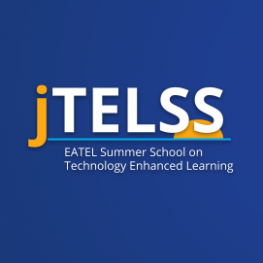Speakers
Domitile Lourdeaux
Alliance Sorbonne Université, FranceUniversité de technologie de Compiègne, FranceStart
26/05/2022 - 09:00
End
26/05/2022 - 10:00
Keynote 4: Narrative orchestration based virtual environments for training
Thursday 26/05 09:00-10:00
Main Hall
Abstract.
Virtual environments allow learners to experiment, practice and see the impact of their decisions. In professional training, in order to facilitate learning through personal experience, it is necessary to confront the trainees with a wide variety of situations adapted to their level. To support this type of learning, writing scenarios requires significant work. This effort necessary for the scaling up of coherent and precisely controlled scenarios constitutes what is called authoring bottleneck what is more when we are interested in ill-defined domains as in the case of crisis management training.
One of the IT challenges is to be able to dynamically orchestrate these environments. In this presentation, we will present an orchestration system aiming at a set of objectives often considered as contradictory: freedom of action allowing learning by doing, the dynamic character and the effectiveness of the control of the scenario to allow resilience and to guarantee situations of interest promoting learning, the consistency of behaviors which must be representative of those observed in the field, the explicability of behaviors to promote reflective learning and finally the adaptability of the system, necessary for the variability, the maintainability and the reusability of the scenarios.
To maintain freedom of action and ensure the adaptability and explainability of behaviors, we dynamically and automatically generate learning situations from knowledge models that underlie the simulation. It is impossible to script all possibilities, which is why we offer a sufficiently generative orchestration system to offer a wide range of scenarios and to be able to regenerate others if the trainee goes against the initial scenario. We hypothesize that it is the generative power that will achieve the variability and resilience objectives. However, the more a system is generative, the more difficult it is to obtain scenarios faithful to the intention of the author (narrative paradox). Moreover, the situations we generate involve stressors that can influence each learner differently. The research questions that then arise are: 1) how to guarantee that the trainee will encounter relevant situations faithful to the author’s intention while leaving her/him a great freedom of action? and 2) how to generate faithful and coherent scenarios with a high generative power allowing to reach the objectives of resilience and variability?
We will present a computational orchestration model reifying cognitive models, learning theories and narrative theories. Our model combines symbolic (knowledge models, planning) and numerical (probabilistic approaches, belief functions) artificial intelligence approaches.
About the speaker.
Domitile Lourdeaux is an Associate Professor at Alliance Sorbonne Université, Université de technologie de Compiègne, CNRS Heudiasyc. Her research interests are the orchestration of virtual environments for training in critical situations. She has been vice-president of the French Association for Artificial Intelligence and head of the Artificial Intelligence and Data Science course at Université de technologie de Compiègne since 2020. She was a member of the National University Committee (CNU) between 2013 and 2019. She coordinated several national projects: ANR VICTEAMS (training of teams to rescue the injured), ANR NIKITA (aeronautical training), ANR V3S (training on high-risk sites) and RIAM APLG (monitoring in virtual reality). She is a scientific manager for the CNRS of the European H2020 INFINITY (coupling of virtual reality and artificial intelligence tools for the investigation of data in the fight against crime and terrorism).
Homepage: https://www.hds.utc.fr/~dlourdea/

